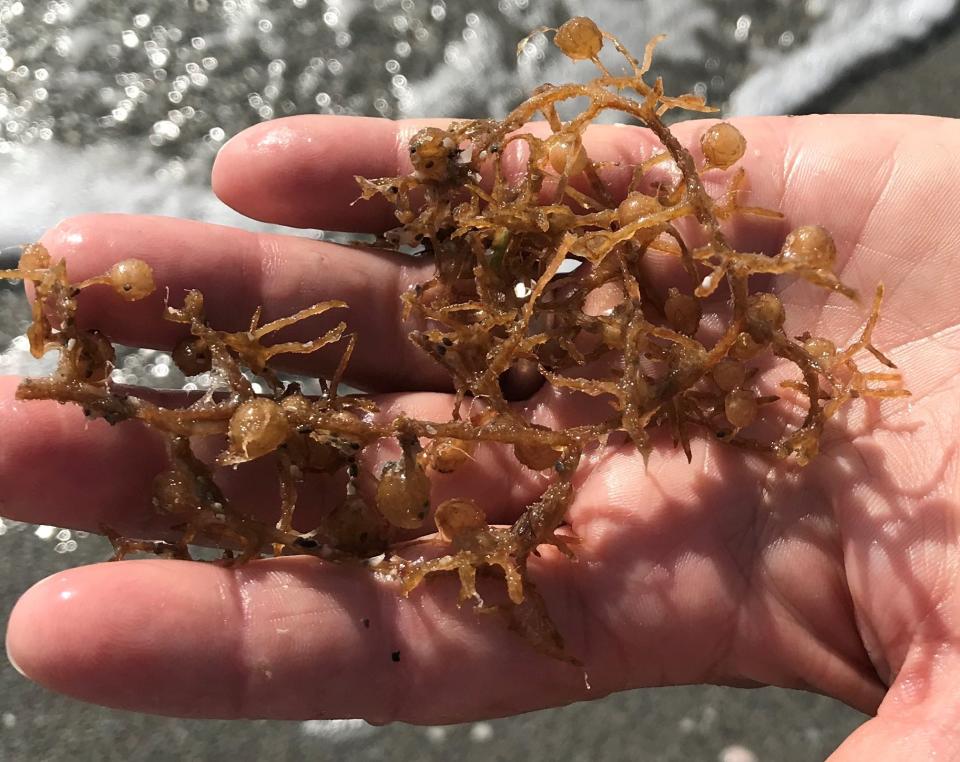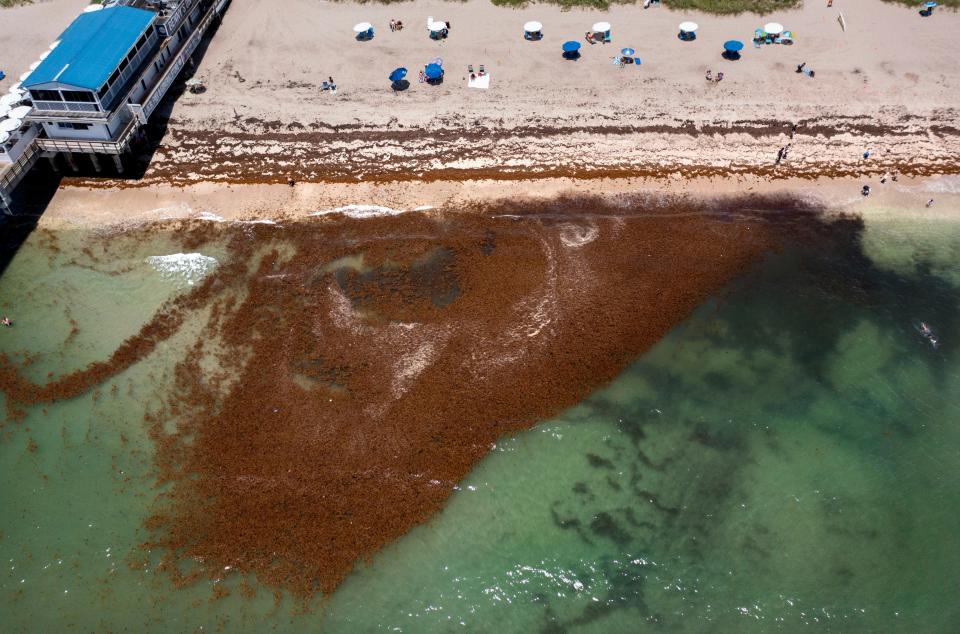Will sargassum wreak havoc on SWFL beaches this summer?
Remember the massive sargassum bloom that blanketed Southwest Florida beaches last summer?
Of course you don't, because we didn't get hammered by the floating mass of seaweed, predators and prey.
Southwest Florida doesn't often get covered by sargassum as the prevailing currents tend keep the massive piles of seaweed away from our coast.
Sure, you can find it on local beaches, but it's scattered and actually a healthy part of what's known as the wrack line.
Instead of relying on national media reports that don't represent reality in our region, we sought out a local expert on beach habitats and Florida biology to find out if and when we will see piles of sargassum.

"We do have sargassum floating in the Gulf of Mexico itself but nowhere near as big a mass as the sargassum sea (that's found in the Atlantic)," said Jim Beever, a retired biologist and Southwest Florida native. He said he hasn't really seen the piles of sargassum here like those that show up on the Atlantic coast.
So while some national media paint a picture of the entire Sunshine State being blanketed in 3-foot piles of sargassum, Southwest Floridians won't see much this summer.
Currents keep sargassum off SWFL beaches
"In the Gulf of Mexico, we have a different current situation because we tend to not get as much sargassum," Beever said. "There is a very large sargassum raft in the central Atlantic Ocean, and that is always there and it's a habitat in and of itself. When the sea turtles hatch and head off to the ocean, that's where they go because it's habitat that protects them from predation and it's where they can find food."
And while some accounts paint the sargassum as a yearly plague that dominates Florida's coastlines, sargassum is actually natural and a healthy part of the oceanic ecology.
More: Florida asks feds to let more than 1,000 permits slide after judge rules process illegal
"A lot of fishes will use sargassum for protection and they meet up there for breeding and you have shrimp and crabs and other invertebrates that attaches the sargassum," Beever said. "There's this band of sargassum which tends to run east-west in the Atlantic and that's the one that tends to break off and end up on the shoreline."
Sargassum is also healthy for the beaches themselves as it provides structure for sand dunes, habitat for smaller beach critters and food for others.
"It really brings food to the beach and shorebirds love it," Beever said. "Living beaches need those inputs from the sea."
What is sargassum?
Sargassum is a type of floating seaweed that forms a huge mat in the Atlantic Ocean every summer.
The macro-algae have air sacks that help it float at the surface, where it creates habitat for everything from hatchling sea turtles to marlin and tuna.

Sargassum is a natural part of the ocean environment, and it's evolved with the ocean currents winds and beaches for approximately 30 million years.
More: Botana: Bill to change Estero Bay Aquatic Preserve boundaries will be back in 2025
Is it getting larger with climate change?
"Some people say it's getting larger and it's not just warming but warming combined with nutrients, but other people say it's picking up the nutrients so it's clearing the water column of nutrients so it's a natural scrubber," Beever said. "Other people complain that it's catching all this plastic debris, but others say it's taking plastic debris out of the water column."
Connect with this reporter: Chad Gillis on Facebook.
This article originally appeared on Fort Myers News-Press: Is sargassum a notorious beach wrecker or just healthy, natural wrack?

